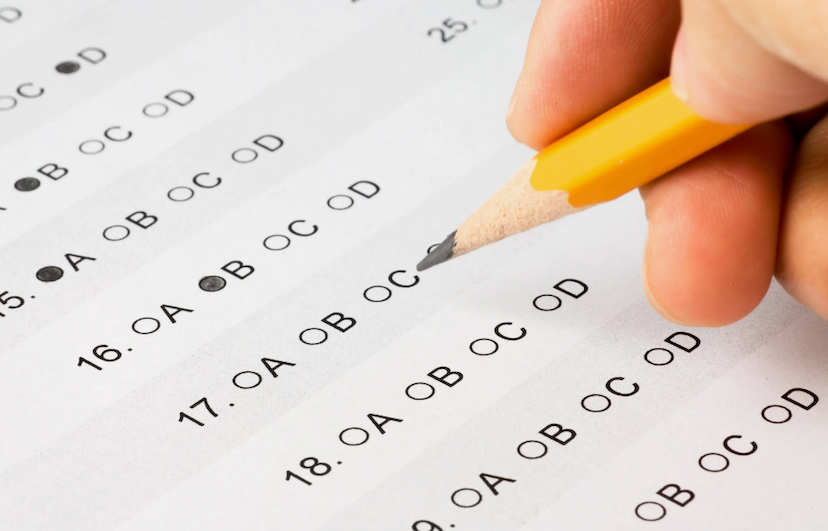CBSE New Bi-Annual Exams: Benefits, Framework Explained

CBSE New Bi-Annual Exams: A Closer Look at the Bi-annual Approach and New Curriculum Framework
The educational landscape in India is witnessing a groundbreaking shift as the Central Board of Secondary Education (CBSE) introduces a transformative change – the adoption of bi-annual examinations. Aligned with the National Education Policy (NEP) 2020, this innovative approach aims to revolutionize the traditional assessment system and provide numerous benefits to students.


CBSE New Bi-Annual Exams signify that now twice a year for classes 11 and 12, CBSE aims to reduce the intense pressure on students, foster a more comprehensive learning experience, and align with modern educational philosophies. This article explores the advantages of the new bi-annual exam system while delving into the framework that supports this progressive shift.
This transformative move aims to alleviate the mounting pressure on students while fostering a more comprehensive and flexible education system. Let’s delve deeper into this innovative approach and explore the benefits it brings along with the revamped curriculum framework.
CBSE New Bi-Annual Exams: Approach
Traditionally, board exams have been an annual affair, often inducing tremendous stress on students as they prepare for the culmination of an entire academic year. The newly introduced bi-annual examination system seeks to revolutionize this paradigm. Under this system, students will have the opportunity to appear for board exams twice a year, effectively spreading the evaluative load and offering them a chance to enhance their academic performance.

Advantages of the CBSE Bi-annual Approach
The introduction of CBSE new bi-annual exams system marks a pivotal moment in the Indian education sector. The benefits of reduced pressure, enhanced learning, score improvement opportunities, and holistic assessment underscore the student-centric approach that CBSE is embracing.
1) Reduced Pressure
One of the primary advantages of the CBSE bi-annual approach is the reduction in pressure on students. With exams split across two sessions, students can experience a more balanced and manageable study routine, diminishing the anxiety associated with year-end exams.
The shift from an annual to a biannual board examination system is a significant stride towards alleviating the mounting pressure on students. Traditionally, a single yearly examination could determine a student’s academic fate for an entire year. This approach often led to intense stress and anxiety, hindering the overall learning experience.

The introduction of biannual board exams will provide students with two chances each year to demonstrate their understanding and grasp of the subjects. This change not only reduces the stakes of a single examination but also offers students the opportunity to progressively enhance their scores over the course of the academic year.
2) Enhanced Learning
The CBSE bi-annual system encourages consistent learning throughout the year. Students are more likely to engage with their subjects on an ongoing basis, resulting in better understanding and retention of concepts.
The transformation of the assessment process aligns with the NEP’s vision of holistic education. The NCF 2023 emphasizes the importance of nurturing critical and creative thinking skills in students. By dividing the board examinations into two sessions, the curriculum encourages continuous learning and deeper engagement with the subjects. This shift is likely to drive students to focus on a comprehensive understanding of concepts rather than rote memorization, which has been a concern in the conventional examination system.


The new biannual board examination system introduced by the Ministry of Education brings with it a remarkable advantage: the ability for students to enhance their scores through subsequent attempts. This flexibility recognizes the diverse learning paces of students and acknowledges that mastering certain subjects might demand extra time and effort.
Unlike the traditional annual exam system, where a single evaluation decides a student’s fate for an entire year, the biannual approach provides students with two opportunities each year to exhibit their comprehension and grasp of the subjects.
For instance, complex subjects such as advanced mathematics or scientific disciplines often require a more profound understanding that can’t be rushed. In the conventional setup, students may feel immense pressure to excel in a single attempt, even if they haven’t fully grasped the concepts.
The biannual system relieves this pressure and fosters an environment where students can take the time they need to truly comprehend intricate subjects. They can then apply their insights and learnings from the first attempt to perform even better in the second one. This not only promotes a more profound understanding of the subject matter but also aligns with modern educational philosophies that prioritize mastery over rote memorization.
4) Holistic Assessment
The shift to CBSE biannual board exams not only eases the burden on students but also ushers in a more comprehensive approach to evaluating their capabilities. Traditionally, a single high-stakes examination determined a student’s academic prowess, often overlooking their overall growth and development. In contrast, the dual-exam system allows educators to gauge a student’s progress over two distinct testing periods, providing a more accurate reflection of their strengths and areas for improvement.
Educators can now assess how a student’s performance evolves over time, capturing nuances that might be missed in a one-off annual exam. This aligns with the educational principle that learning is a continuous journey and that a student’s capabilities can flourish with sustained effort. The biannual assessment model also enables educators to identify trends, learning curves, and adaptive strategies that a student employs to enhance their scores. Such insights provide a holistic view of the student’s academic journey and offer valuable information for tailored teaching and support.

5) Multilingual Proficiency: Nurturing Cultural Understanding
Another critical facet of the NCF 2023 is the requirement for students to study two languages in classes 11 and 12, one of which must be an Indian language. This initiative reflects India’s linguistic diversity and its commitment to preserving and promoting regional languages. Proficiency in multiple languages not only enhances communication skills but also fosters a deeper appreciation for various cultures and identities. Additionally, this mandate aligns with the NEP’s goal of a more holistic and well-rounded education.
The introduction of biannual board exams and the emphasis on multilingual proficiency mark a transformative phase in Indian education. This shift not only addresses the shortcomings of the traditional examination system but also underscores the commitment to nurturing students’ overall growth. It is essential for educators, parents, and policymakers to embrace these changes as an opportunity to foster a more enriching and supportive learning environment.

The bi-annual exam system is intricately tied to the comprehensive reform of the curriculum framework outlined in the National Curriculum Framework (NCF) 2023. This framework is designed to align with the NEP 2020 and addresses various aspects of holistic education.
Language Study: A noteworthy directive of the NCF is the mandate for students in classes 11 and 12 to study two languages. At least one of these languages should be Indian in origin, promoting linguistic diversity and preserving the rich heritage of the country.
Stream Flexibility: The framework grants students the autonomy to choose their preferred academic streams in classes 11 and 12. This move acknowledges the diverse aspirations and interests of students, fostering a more personalized learning experience.
Application-based Learning: To nurture critical and creative thinking, the curriculum will shift towards more application-based learning methods. This shift aims to empower students with practical skills and problem-solving abilities that extend beyond rote memorization.
Conclusion
The decision to introduce CBSE New Bi-Annual Exams bi-annual board exams and revamp the curriculum framework reflects a forward-thinking approach to education in India. By offering students increased opportunities for success, reducing the burden of examinations, and embracing a more versatile curriculum, the CBSE is taking a significant step towards aligning its practices with modern educational philosophies.
This transformation holds the promise of not only producing better academic outcomes but also nurturing well-rounded individuals equipped to thrive in a rapidly evolving world. By aligning with the principles of the NEP 2020 and the NCF 2023, this transformative shift is poised to empower students with a well-rounded education that prioritizes understanding, critical thinking, and individual growth over rote memorization.
As the CBSE paves the way for a more flexible and comprehensive assessment model, it not only modernizes education but also nurtures a generation of learners who are equipped to excel in an ever-evolving world.
Meet Tanu Bhatnagar, an educational expert with extensive experience in teaching, research and mentoring.With a decade in education and research, Tanu combines academic expertise with engaging storytelling. Her research background ensures every article is well-researched and insightful. Beyond textbooks, Tanu's expertise spans writing, exam preparation, economic trends, and global education, delving into the realms of spiritual awakening. This diverse perspective shines through in his writing, offering a fresh take on education. Join Tanu and CollegeChalo for an enriching learning adventure, where his passion ignites yours, and his words light your way.









